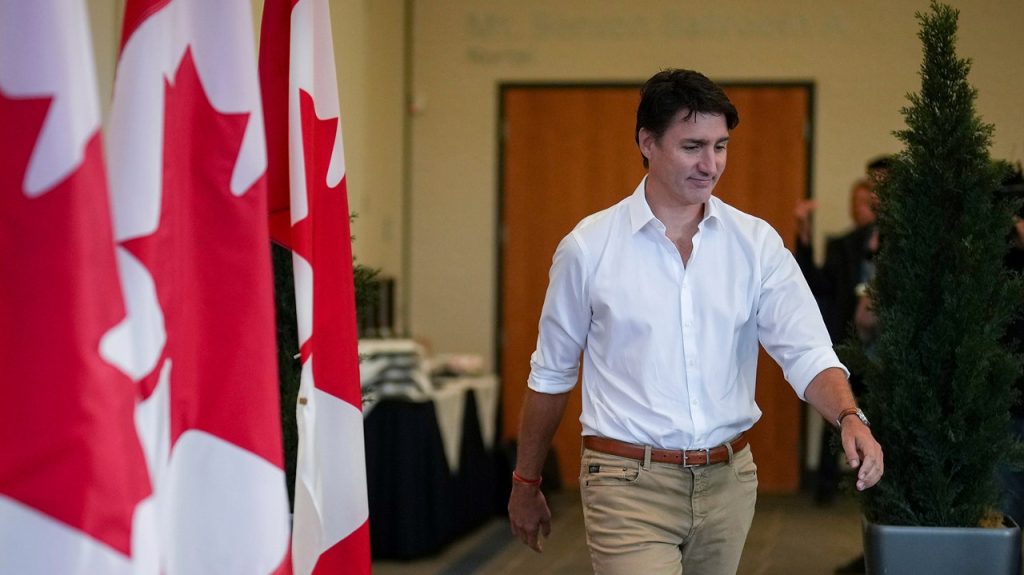Canadian Conservative leader Pierre Poilievre announced plans to put forward a no-confidence motion against Prime Minister Justin Trudeau’s Liberal government in hopes of triggering an election. Poilievre called on NDP leader Jagmeet Singh to support the motion, but Singh refused to give a definitive answer. The NDP recently withdrew from a supply-and-confidence agreement with Trudeau’s government, signaling a potential shift in alliances. The next federal election is scheduled for October 2025, but the possibility of an earlier election looms as tensions rise in Parliament.
As the political landscape in Canada shifts, the Liberals currently hold 154 seats in the House of Commons, the Conservatives hold 119, and the NDP have 24. The Bloc Québécois, a Quebec-based party advocating for sovereignty, has 32 seats. The possibility of the Bloc Québécois supporting the government on certain issues could impact the outcome of any vote of no confidence. With most polls showing the Conservatives ahead of the Liberals, Trudeau’s leadership and popularity remain a topic of debate among voters and politicians alike.
While Trudeau faced criticism from some within his own party, he remained focused on implementing programs to support Canadians, such as dental care for seniors and childcare. The upcoming byelections in Montreal and Winnipeg will provide voters with an opportunity to voice their concerns and ambitions for the future. The outcome of these byelections could serve as a barometer for Trudeau’s leadership and the potential for an early election in Canada.
Furthermore, Poilievre criticized Trudeau’s appointment of Mark Carney as the chair of a task force on economic growth, calling him an unelected “phantom finance minister.” The move raised questions about the influence of unelected officials on government policies. Poilievre’s opposition to Carney’s appointment highlighted the broader concerns surrounding accountability and transparency in Canadian politics. The role of unelected individuals in shaping economic policies and decisions remains a point of contention among political parties and Canadian citizens.
With parliamentary proceedings set to resume, the possibility of a no-confidence motion and early election could reshape the political landscape in Canada. The Conservatives’ push for a vote of no confidence and the NDP’s refusal to commit to a position underscore the uncertainty and tensions within the Canadian Parliament. As parties navigate shifting alliances and priorities, the outcome of future votes and elections will determine the direction of Canadian politics. The upcoming byelections and debates over key issues will test the resilience of Trudeau’s government and the resolve of opposition parties in Canada’s ever-evolving political landscape.


